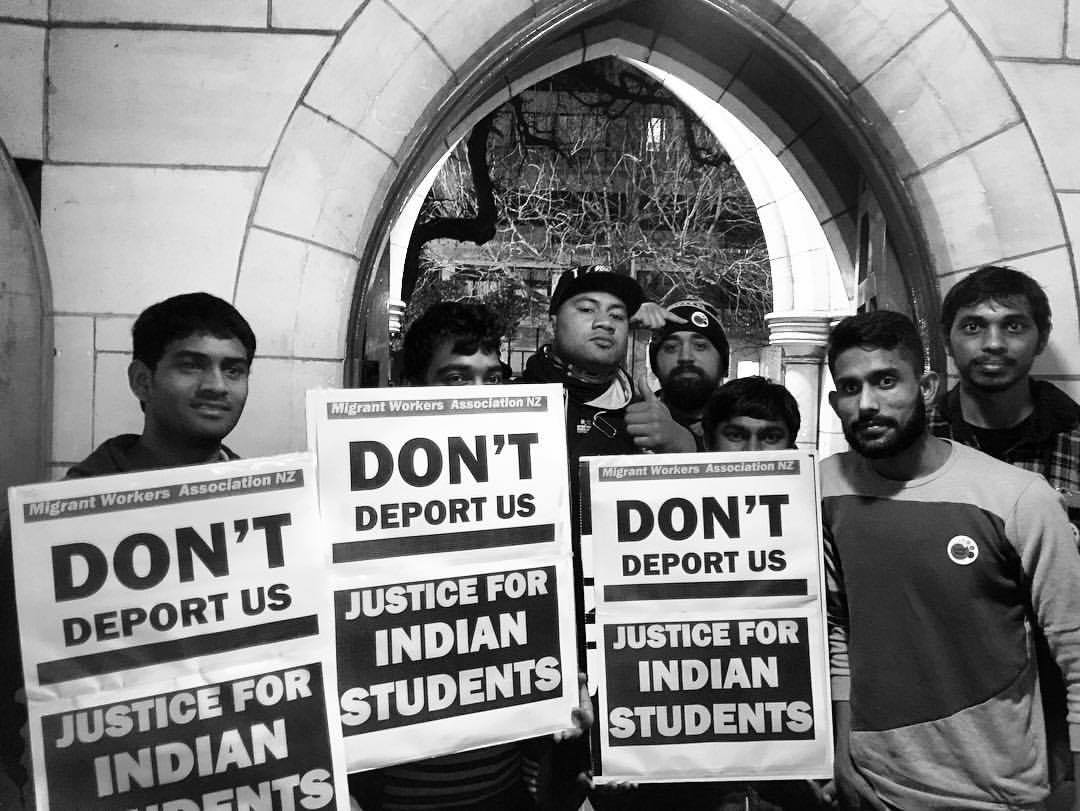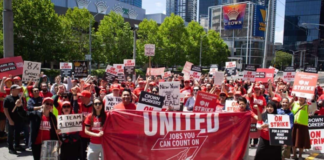National Party Prime Minister Bill English launched an attack on rights and opportunities available to migrant workers in New Zealand in April.
His promise of a “Kiwis first approach to immigration” came just days after Malcolm Turnbull announced similar changes to “put Australians first” and Donald Trump campaigned to “Buy American, Hire American”, issuing an executive order to review migrant worker visas in the US.
All three politicians are scapegoating migrants for problems caused by many years of neo-liberal attacks on working class living standards.
In New Zealand, migrants have been blamed in particular for an acute housing affordability crisis, driven by property investors and a large scale sell off of state housing.
The changes will restrict access to the “skilled migrant” visa to workers who earn more than $49,000. Migrant workers already living in New Zealand will have three years to find a job that meets the new requirements, or face deportation. Migrants seeking permanent residency will also no longer be able to claim “points” that count towards their application working jobs that pay less than $49,000.
 Lower paid workers could be eligible for a new visa that restricts their stay to just three years, offers no pathway to residency and denies family the right to travel with them.
Lower paid workers could be eligible for a new visa that restricts their stay to just three years, offers no pathway to residency and denies family the right to travel with them.
Immigration lawyer Alastair McClymont argues that the changes will hit Indian migrants particularly hard. He says “90 per cent” of Indian students studying in New Zealand have come looking for a pathway to residency that has now been closed.
Another lawyer Richard Small told the ABC’s Pacific Beat that Pacific Islanders will also be heavily affected with the changes part of, “a quiet closing of the door to the Pacific… as many as 90 per cent of skilled migrant applications from the Pacific would be unlikely to succeed”.
Disgracefully, just like in Australia, the New Zealand Labour Party has called for even harsher restrictions on migrant workers, pledging to cut migration numbers by “tens of thousands” if elected. Greens co-leader James Shaw has also campaigned for tougher immigration controls.
Resistance to the attacks has come from Unite, a left-wing union representing hospitality and retail workers. Unite has held a number of meetings to call for amnesty for workers already in New Zealand, including at the SkyCity casino where hundreds of migrant workers are organised in the union.
At the meetings, some speakers raised the discrimination that New Zealand workers face in Australia, where they are denied access to government services, calling for unity and a fight for migrant workers’ rights on both sides of the Tasman.
By Paddy Gibson





